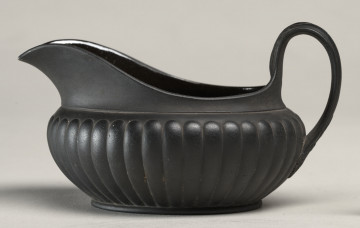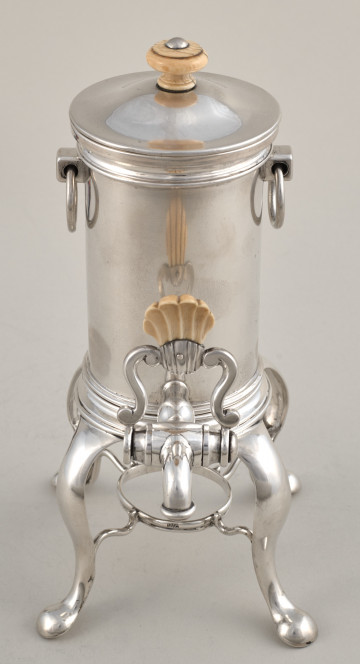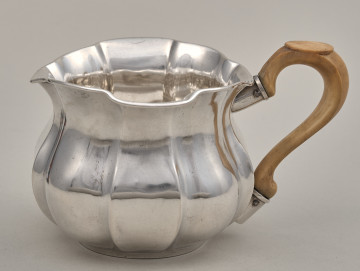
Milk vessel
19th (?) century
Castle Museum in Łańcut
Part of the collection: European enamelworks
The preserved flat bowl is probably a part of a decorative epergne, which is suggested by a damage in its central part, where the point of connection with the body was probably situated. The surface was fully covered with enamel with en grisaille decoration against a black background with gildings. The scene of the judgement of Paris is shown inside. On the outside, a star of acanthus leaves and gold arabesques are shown.
The judgement of Paris is one of more popular mythological events. Paris, called also Alexander, was the younger son of King Priam and Hecabe. His birthday was preceded by a prophetic sign, which said that the newborn child will cause the downfall of Troy. In order to escape the destiny, the child was taken away from the palace and an order was given to kill it. However, the child was not killed and, instead, shepherds took care of it. Paris grew to be a beautiful and caring young man, but the scene of judgement that occurred with his participation became the hotbed of the Trojan War. During the wedding ceremony of Thetis and Peleus, Eris (Discordia) appeared and threw an apple between the participants of the ceremony. The apple was to be given to the most beautiful woman. Paris/Alexander, whose name meant ‘defender’, was asked to settle the dispute that had followed. In order to win, the three goddesses who came to Paris: Hera, Athena and Aphrodite offered valuable gifts to the arbiter. Paris yielded to Aphrodite’s promise of acquiring the love of the beautiful woman: Helen of Sparta. The scene of judgement became an attractive topic undertaken by many artists. Paris was usually depicted as a shepherd settling the dispute of the goddesses against the background of a woody landscape.
The bowl was shown to the Warsaw audience during An Exhibition of Antique and Art Objects in the palace of Count August Potocki and his wife at Krakowskie Przedmieście 32 (today the Museum of the University of Warsaw) in 1856. In the catalogue of this exhibition, it is described as an enamelled bowl under item 795, which means that it had no foot already at that time.
Joanna Paprocka-Gajek
Dimensions
entire object: height: 4,5 cm, width: 20,5 cm
Technique
forging,enamel
Material
copper
Owner
Museum of King Jan III's Palace at Wilanów
Identification number
Location / status

19th (?) century
Castle Museum in Łańcut

19th (?) century
Castle Museum in Łańcut

19th (?) century
Castle Museum in Łańcut
DISCOVER this TOPIC
National Museum in Szczecin
DISCOVER this PATH
Educational path